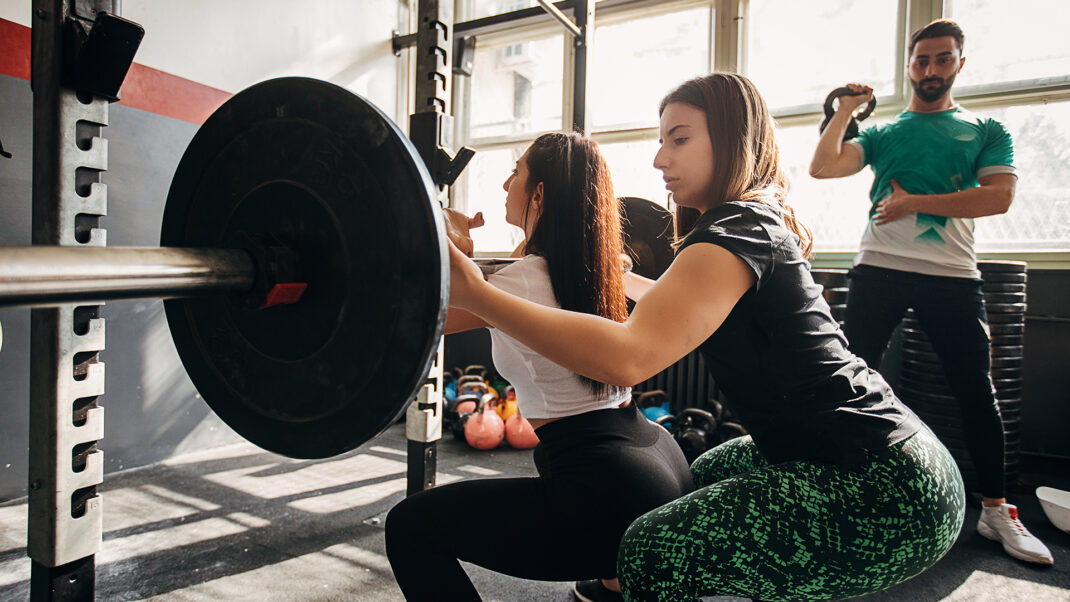Stretching That Works for Men
Help your male participants reach common areas of hip inflexibility with resistance bands.
Many men struggle with inflexibility and diminished joint range of motion, especially as they age, and stretching is often the most poorly performed component of their exercise programs. You can help male participants to develop an effective active-stretching program by incorporating continuously looped resistance bands into your cool-down. This approach may help men with over tight hips to restore agility, strength, power and balance.
Watch the author demonstrate these stretches here:
www.ideafit.com/stretching-for-men
Keep the following principles in mind when you cue form:
- Apply a gradual force that safely takes
muscles beyond structural tightness
but not anatomical tightness. - Contract the opposing muscle while
you stretch. - Aim for dynamic, short-duration
stretching.
When used properly, continuously
looped resistance bands
- provide a controlled and gradual
force that takes the muscle deeper
into the restricted range of motion; - create a counterforce for muscles to push against, generating relaxation
and lengthening; and - offer greater control over stretching
duration.
Incorporate the following hip stretches into your next cool-down to help male participants recover the flexibility—and thus power, strength and athleticism— they may have lost over the years.
Hip Rotation

- From supine, place right (R) foot firmly against wall, knee straight (keep this contact throughout).
- Loop band around left (L) foot and, with L hip flexed at 90 degrees, grasp band 2 inches from L foot.
- Pull band and foot toward R shoulder
while allowing L knee to bend, feeling strong stretch in L glute; hold 2–3 seconds before releasing. - Repeat multiple times for 1 minute, bringing L foot closer to R shoulder with each rep. Do not allow R knee to bend.
- Switch sides.
Hamstrings

- Wrap band firmly and securely over arch of L foot.
- Grasp band approximately 6–8 inches from L foot while placing R foot firmly against wall, R knee fully straightened. Keep it straightened throughout movement.
- With elbows on floor at shoulder height, press L heel toward ceiling, straightening L knee as much as possible.
- Perform rhythmical repetitions, straightening L knee and flexing L hip more with each rep while preventing R knee from flexing.
- Between reps, bend L knee just enough so that stretch tension is taken off L hamstring.
- Switch sides.
Anterior Hip and Thigh

To optimally stretch anterior hip and thigh, actively engage opposite hamstring to avoid compensation. Also, engage core to avoid arching in low back.
- Wrap band around R foot and lie on R side.
- Bring L leg in front, flexing L knee and hip to 90 degrees while firmly placing foot on floor.
- Position R leg behind you. Firmly grasp band behind head.
- Fully extend elbows, increasing band tension. Actively move elbows through full range of motion to stretch R anterior hip and thigh.
- Keep R thigh behind body, not in front. This will ensure both hip and thigh are being stretched simultaneously.
- Switch sides.
Adductor/Groin Stretch

- With band attached to L foot, hold L elbow relatively close to floor at shoulder height. Press R leg firmly against stable structure (this is key).
- Rhythmically press L heel laterally and upward, trying to straighten knee fully with each rep. Keep movement short; release when tension is off muscle; repeat.
- Maximize full range of motion with each rep while keeping R leg flat and foot secure.
- Switch sides.





